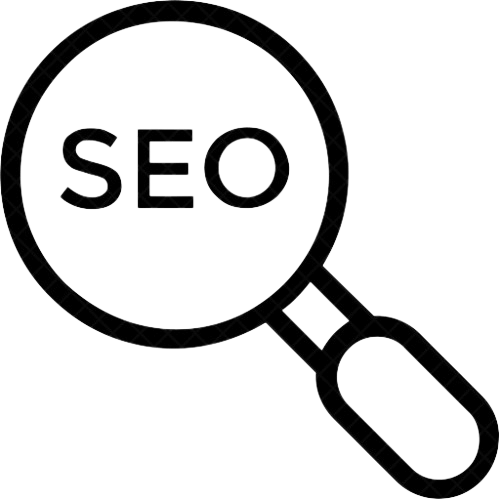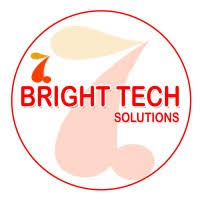Search Engine Marketing Services
What Are Search Engine Marketing Services?
SEM Services are the methodologies and processes that assist a website to achieve more conspicuousness through paid advertising and optimization in search engines’ result pages. SEM includes different tactics such as:-
- Pay-Per-Click Advertising (PPC)
- Search Engine Optimization (SEO)
- Display Advertising
- Remarketing/Retargeting
- Local Search Marketing
Mobile Search Advertising; The ultimate objective is to attract targeted visitors to the website, enhancing brand consciousness, and ultimately achieving higher conversions.
Reserve the Top Position & Increase Revenue
Importance of Search Engine Marketing Services
More Visibility SEM provides greater visibility of the business in search results, making it easier to reach a much larger audience that is actively searching for their products or services. Increased flows of visitors come with an increase in visibility on the website.
Targeted Traffic SEM attracts traffic that is targeted at specific keywords and demographics such that the resulting traffic is relevant to the business’s offerings. Targeting boosts conversion rates.
Cost-Effective Advertising Sem allows businesses to have control over advertisement budgets because, like PPC advertising, only a click on the ads leads to charges for the users. Thus, it can be considered very cost-effective when matched with traditional advertisements.
One easily measurable outcome of SEM is the instantaneous measurement of the performance of a campaign. Therefore, it will hence be possible for businesses to track the number of clicks, conversions, and other such important parameters to evaluate the performances of their marketing campaigns.
Advantage over the Competition – SEM will let businesses outshine their competitors because it allows businesses to occupy prime advertising space in search results, which can further lead to increased market shares in extremely competitive markets.
Core Principles of Search Engine Marketing Services
- Pay-Per-Click Advertising (PPC) PPC is an online advertisement platform through which a business competes on its bids on the keyword in order to have its advertisements displayed in the search engine. The core principles of PPC include:
- Keyword Research: This is finding relevant keywords that people are searching for.
- Creation of the ad: This is the process of developing attractive and catchy ad copy and visuals.
- Landing Page Optimization: It must be relevant to the ad and optimized for conversion.
- Bid Management: Keywords Bidding on keywords to garner maximum advertisement position within the budget constraints.
Search Engine Optimization (SEO) SEO is the technique of optimization of a website for better and higher rankings in search engine result pages. The major SEO techniques include:
Optimizing individual web pages. This includes keyword usage, meta tags, and content quality.
- Technical SEO : Optimizing a website technically to enhance site speed, mobile-friendliness, and URL structure.
- Off-Page Optimization: Influencing and enhancing authority of your website through external parties by earning back links.
- Display Advertising All display ads on websites that are being shown on Google’s Display Network or any other advertisement network. Key Takeaways:
- Banner Ads Create attractive banner ads to grab user’s attention.
- Retargeting Ads Display ads to users who have previously visited your website, in a bid to lure them back in for conversion.
- Remarketing / Retargeting Remarketing enables businesses to reconnect to previous users who had already interacted with their websites. The key strategies include: –
- Audience Segmentation Users must be segmented based on their interaction such as the ones who abandoned their shopping cart or looked at certain products.
- Personalized Ads Create personalized ads based on a user’s previous activity and remind them of an outstanding purchase.
- Local Search Marketing Refers to the process of optimizing a business’s online presence so they have a better chance of attracting the local customer. Some important aspects include:
- Google My Business- Setting up and optimizing the Google My Business profile in order to be able to appear in the local search results.
- Keyword research: Targeting location-specific keywords in order to reach customers nearby.
- Customer Reviews: Encourage and moderate customer reviews to earn credibility and accumulate local customers.
- Mobile Search Advertising With the ever-increasing online search through mobile devices, mobile search advertising becomes rather imperative. Some of its main strategies comprise:
- Developing mobile-friendly ads for an enhanced user experience.
- Location targeting-users likely to be searching for products or services in their locality.
- Effective Strategies for Search Engine Marketing Services
- Conduct Thorough Keyword Research. Effective and streamlined SEM starts with thorough keyword research. The best ways to do this would be through the help of Google Keyword Planner, SEMrush, or Ahrefs. These can help you find relevant keywords coupled with high search volumes that have manageable competition. Target long-tail keywords corresponding to your target audience’s search intent.
- Craft Persuasive Ad Copy Your ad copy should be persuasive and relevant to the targeted keywords. It ought to focus on USPs, using clear CTAs that will make users click through. Test different versions of ad copy to choose the best variant.
Optimize Landing Pages Be sure your landing pages are optimized for conversion. In particular, keep an eye out for the following:
- Relevance: A landing page must be associated with the purpose of the advertisement and must have relevance with it.
- User Experience: The layout of the page must be optimized in a way that the user finds navigation easy and the experience smooth.
- Strong CTAs: Use strong clear, and compelling CTAs that can coax the users to the desired action, such as purchase or form filling.
- Run a test A/B on the SEM. Test all the ad creatives, landing pages, and targeting strategy to see what works best for your target audience. Refine your campaigns continuously based on the learnings from tests.
- Monitor and optimize campaign performance. You should continuously track the performance of your campaigns so you can easily track the key metrics like CTR, conversion rates, and CPA. Continue adjusting the bids, targeting, as well as ad creatives based on performance data with the view of maximizing ROI.
- Use Negative Keywords Negative keywords prevent your ads from showing on irrelevant searches. You remove certain keywords that have absolutely nothing to do with your offerings, so your ads become as relevant as possible and waste less ad spend.
- Use Ad Extensions Ad extensions make your PPC adverts more informative and rich with added options for the users. Some of the key types of ad extensions include:
- Site Link Extensions: They give you a chance to add extra links to the specific pages on your website.
- Call Extensions: Add phone numbers so that users can call directly from an ad.
- Location Extensions: Add the address of your business with a marker on Google Maps.
- Optimize for Voice Search Since voice search is becoming increasingly more prominent, optimizing a SEM strategy for voice queries is important. Again, use natural language for keyword phrases that users would typically say when talking.
- Google Ads Google Ads is the leading pay-per-click advertising company through which companies can place and track their ads through Google search results as well as across the
Google Display Network.
Google Analytics Google Analytics, on the other hand generates informative website traffic, user behavior insights, and conversation tracking. All these are meant to measure the success of SEM campaigns.
SEMrush: SEMrush is the all-inclusive SEO and marketing tool that provides key word research, competitor analysis, and tracking of both SEO as well as PPC campaigns.
Ahrefs Ahrefs is another big-time SEO tool that allows keyword research, backlink analysis, and site auditing facilities to businesses to fine-tune their online presence.
SpyFu: Using SpyFu, businesses can analyze competitor PPC campaigns and organic search strategies for precious insights in developing effective SEM strategies.
Moz : Moz has many other SEO tools, such as keyword research, site audits, and rank tracking, aimed at enhancing the search engine visibility of a business.
Search Engine Marketing Services Success Metrics
Some of the KPI’s used in measuring the success of your SEM campaigns include:
Click Through Rate CTR: the ratio of number of users clicking on your ad out of the number of times it was displayed.
Conversion Rate : Percentage of visitors that take any desired action, such as a purchase or subscribing to a newsletter.
Cost Per Click (CPC): Advertising spending divided by the total clicks.
Return on Investment: Calculating the ROI helps businesses determine whether or not their SEM efforts are or even how profitable they are. The revenue generated by a campaign should be compared to the costs incurred in order to obtain an overall measure of effectiveness.
Customer Lifetime Value (CLV): CLV, by its most simplistic definition, refers to the amount of money one customer generates for your brand over his/her lifetime. Determination of CLV lets almost every business make prudent choices with its advertising budget and also the tactics to acquire that customer.
Review of A/B Test Results Identify the winners in your A/B tests related to ad creatives, landing pages and targeting strategies. Use this information to continually optimize your campaigns.
Customer Feedback and SurveysYou can obtain feedback from your customers, which often reflects their insight on their experience and perceptions regarding your brand. You can use the surveys and reviews to find out what they have to say.
Future Trends in Search Engine Marketing Services
Further Development of Artificial IntelligenceThe integration of AI and machine learning in the implementation of SEM campaigns will lead to the optimization of such strategies by enabling better data analysis and automatic bidding based on strategic means while enhancing ad targeting.
Voice Search Optimization: Based on voice-activated devices, semantic marketing strategies should also be optimized for voice search. Businesses need to look at natural language as well as long-tail keywords that make sense for the voice query.
Video Marketing Integration Since video content is so hot today, the integration of video ads that will be used in SEM strategies will keep users’ attention and raise the level of engagement.
Local SEO and Marketing With the increase in search for local products and services, optimizing for local SEO and incorporation of local marketing will be the need for business.
Focus on User Experience The search engines always give priority to user experience. Businesses will have to ensure that their sites support seamless and user-friendly experience. Page loading speed will become must-have; sites be mobile-friendly and easy to navigate.





